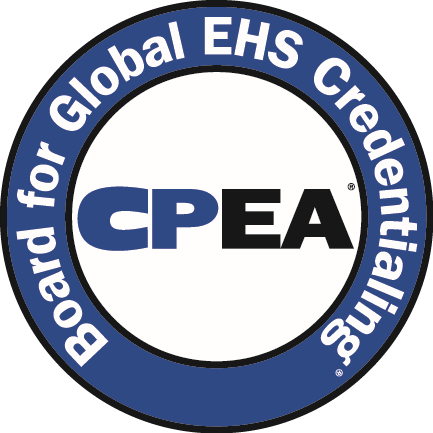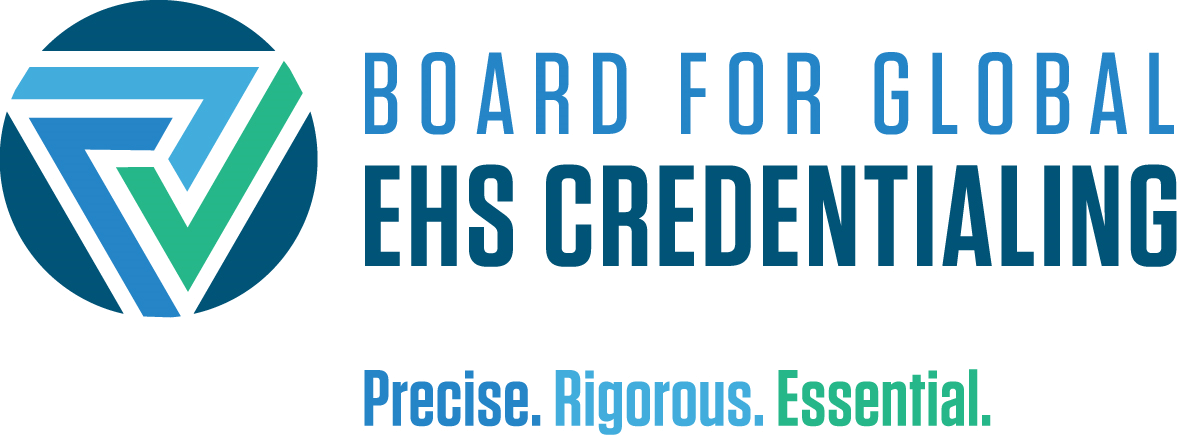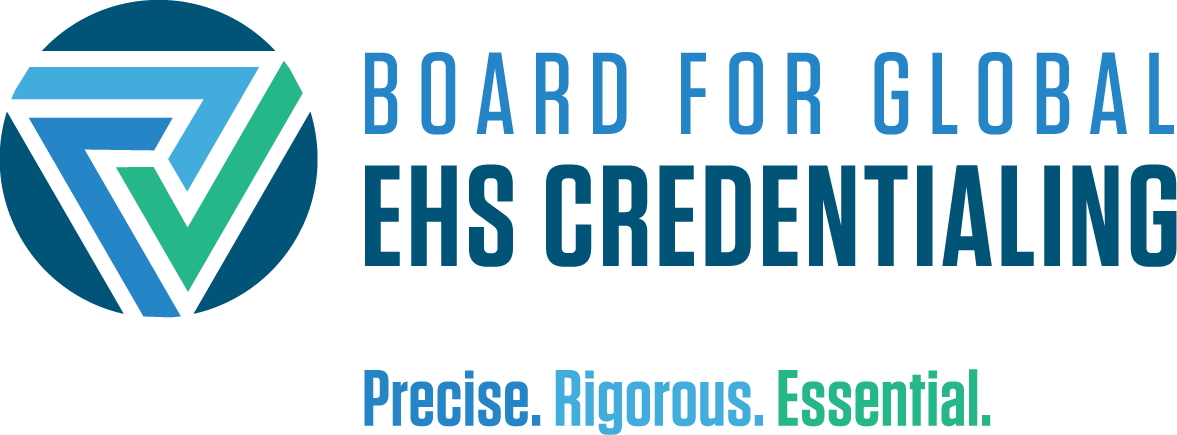The Certified Professional Environmental Auditor (CPEA) credential demonstrates one’s practice of today’s ever-changing EHS regulations and related auditing procedures, processes, and techniques. BGC will only grant the CPEA to practitioners who achieve the requirements for education and experience, agree to abide by BGC’s Code of Ethics, and through examination, demonstrate both general auditing knowledge by passing an exam of general auditing practice and professional-level knowledge and skills by passing multiple-choice and essay exams in one of four specialty areas:
- Environmental Compliance
- Health and Safety
- Management Systems
BGC places no restrictions or qualifications on the career paths of a CPEA as long as the person meets the ongoing requirements in the certification maintenance program and adheres to the professional, enforceable BGC Code of Ethics. CPEAs also qualify for Professional Membership status with the American Society of Safety Professionals (ASSP). The CPEA credentialing program is fully accredited by the Council on Engineering and Scientific Specialty Boards (CESB).
CPEA Specialty Areas: Formal Training and Experience Requirements
Environmental Compliance
|
|
Includes identifying environmental aspects and impacts, assessing compliance with environmental laws and regulations, and/or applying professional environmental compliance auditing practices.
Relevant training and experience must include:
- Identifying environmental aspects and impacts, assessing compliance with environmental laws and regulations, and/or applying professional environmental compliance auditing It may include any combination of environmental science and technology
- Environmental management and technical aspects of business activities including facility operations
- Requirements of environmental laws, regulations, and related documents at the national and local jurisdictional levels
- Evaluation, implementation, and management of environmental compliance
- Environmental standards against which management systems and compliance audits may be conducted
- Management systems and compliance audits procedures, processes, and techniques
- Principles of environmental compliance and compliance implementation
|
Health & Safety
|
|
Includes identifying health and safety aspects and impacts, assessing compliance with safety-related laws and regulations, and/or applying professional health & safety auditing practices.
Relevant training and experience must include:
- Identifying health and safety aspects and impacts
- Assessing compliance with safety-related laws and regulations
- Applying professional health & safety auditing practices
It may include any combination of:
- Safety engineering
- Industrial hygiene
- Health and safety management and technical aspects of business activities including facility operations
- Requirements of OSHA laws, regulations, and related documents at the national and local jurisdictional levels
- Evaluation, implementation, and management of health and safety compliance
- Health and safety standards against which management systems and compliance audits may be conducted
- Management systems and compliance audits procedures, processes, and techniques
- Principles of health and safety compliance and compliance implementation
|
Management Systems
|
|
Includes knowledge and skills in any combination of:
- EHS science and technology
- EHS management and technical aspects of business activities including facility operations
- Requirements of EHS laws, regulations, and related documents at the national and local jurisdictional levels
- Evaluation, implementation, and management of EHS compliance
- EHS standards against which management systems and compliance audits may be conducted
- Management systems and compliance audits procedures, processes, and techniques
- Principles of EHS compliance and compliance implementation
Relevant training and experience must include any combination of:
- Environmental, health & safety (EHS) science and technology
- EHS management and technical aspects of business activities including facility operations
- Requirements of EHS laws, regulations, and related documents at the national and local jurisdictional levels
- Evaluation, implementation, and management of EHS compliance
- EHS standards against which management systems and compliance audits may be conducted
- Management systems and compliance audits procedures, processes, and techniques
- Principles of EHS compliance and compliance implementation
|
| |
|
|
Obligations of Credential Holders
After you pass the exam and are issued your credential, you are required to meet several obligations, not limited to:
- paying your fees on or before the due date,
- continually updating your knowledge and skills,
- documenting knowledge and skills through the Certification Maintenance Process, and
- upholding the BGC Code of Ethics.
Please be aware that if the requirements for certification and recertification change, you will be required to meet them in order to hold your certification.







